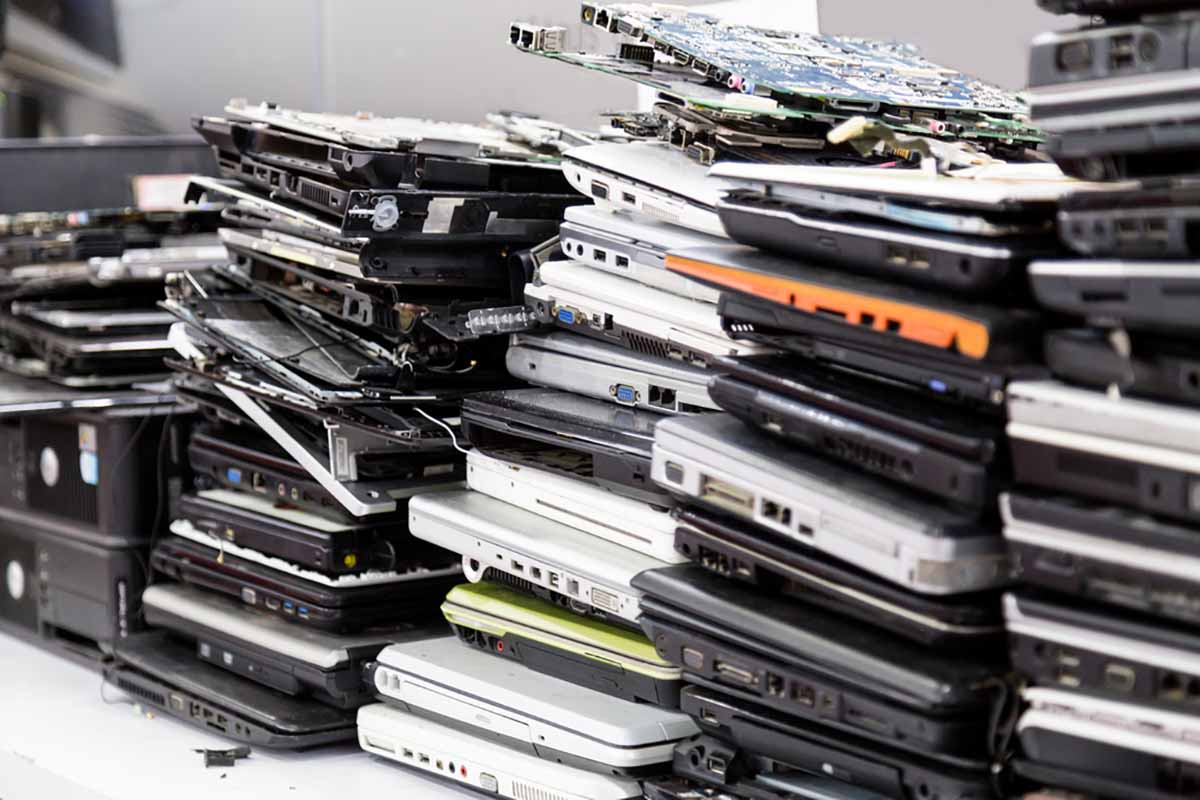
COVID-19 market changes created a turbulent few years for the used laptop market, but recent signs are pointing to a rebound. | ThamKC/Shutterstock
A well-known annual IT industry survey conducted by ITAD firm Cascade Asset Management found the device resale market crash that emerged in 2022 has begun to change course.
Crucially, used laptop prices are coming back closer to their pre-pandemic values, Cascade noted in the 2024 ITAD Benchmarking Report, published Feb. 1.
This is the 10th year Madison, Wisconsin-headquartered Cascade has published its findings, which are based on a survey of IT asset management professionals at 50 enterprises and organizations, all of whom are Cascade clients. They include companies in manufacturing, healthcare, IT services, retail, government entities and more.
“I really believe in the idea that more information helps us all improve,” said Neil Peters-Michaud, CEO of Cascade, in an interview with E-Scrap News. “We want to get better, by reusing more equipment, improving resale values and responding to customer demands in the marketplace, and this is our attempt to add to that body of knowledge.”
Cascade will host a Feb. 14 web presentation covering the report. Registration details are on its website.
Resale value recovery
The pandemic uprooted supply chains, making it difficult for companies to source new computing equipment and driving a huge increase in used device sales. But once those supply chains began to open back up, the used market cooled dramatically. That was on display throughout 2022, when used laptop values dropped by more than 40%, according to Cascade’s price data. Desktops suffered a similar blow in used device pricing.
A parallel trend was the increase in shipping costs, Peters-Michaud said. Shipping prices dropped when the supply chain disruptions caused a slowdown in global shipping, and they increased again once activity started back up. That cost change meant there were fewer global orders for used devices.
All these trends made for a turbulent couple years in selling used devices.
“Overall it impacted the profitability of ITAD companies, because we’re getting paid less for the same product,” Peters-Michaud said. At the same time, macroeconomic factors continued to drive up operating costs, including for business necessities like insurance and rent.
But prices for both types of equipment began to stabilize and even notch upward in 2023, and they’re now sitting closer to where they were at the beginning of 2019. Used laptops closed out 2023 fetching an average price of $73 per unit, 16% higher than a year earlier, and desktops hovered between $30 and $40 per unit throughout the year. (Those prices represent an aggregate of thousands of devices of all quality levels that Cascade handles per quarter.)
Interest rates may be another macroeconomic trend impacting activity in the resale market, Peters-Michaud said. Inflation and rate hikes changed business strategies in late 2022 and 2023, when companies paused or pulled back on acquisitions or growth, because higher rates meant less ability to take on cheap debt.
“If they didn’t grow their business as aggressively, they didn’t need as much computer equipment to fuel that new business,” he explained.
But now, with inflation coming down and interest rates remaining elevated but stabilizing, companies may be reaching a point where they can’t hold off on expansion any longer.
Data security is still the top concern
Since Cascade began its survey, IT managers every year have reported data security is the top criteria they use in arranging for disposal of devices. It outpaces managing environmental risk, minimizing disposal costs, freeing up storage space, maximizing resale proceeds and the quality of service from the ITAD provider.
But over half of respondents also said they consider sustainability reporting initiatives – commonly referred to as Environmental, Social, Governance (ESG) reporting – to be important. And 35% of respondents said this work is “very important.”
Asset retirement plays into these sustainability reporting goals in a number of ways, Cascade noted in the report. Beyond the waste diversion aspect of commodity recovery and device reuse, ITAD practices might play into a digital equity goal through asset donation or a governance goal through demonstrating responsibility by being certified to an industry standard such as R2 or e-Stewards.
“That can really help them demonstrate that they’ve got a well-managed program, because they work with a third-party that’s certified,” Peters-Michaud said.
But despite those areas in which recycling electronics can contribute to ESG work, it seems many ITAD clients don’t yet fully grasp that potential. Only 16% respondents said their organization produces an annual sustainability report (another 30% were unsure). And within that small group, only 19% said their report includes details on electronics recycling, such as the weight of devices recovered. Information on the certifications of ITAD providers was also rarely communicated in those reports (8% of respondents) as was data on electronics reuse (8% of respondents).
In fact, despite many ITAD firms frequently communicating their certification status and long-running industry efforts to communicate the value of certification, Cascade’s report indicates clients are still unfamiliar with the major certifications: A full 60% reported not being familiar with R2, 56% were unfamiliar with NAID AAA and 47% were unfamiliar with e-Stewards.
For ITAD operators, the takeaway is simple: Continue having those conversations with clients.
“It’s just non-stop education that our industry needs to do, to be able to tell people how we can help them meet ESG goals,” Peters-Michaud said.